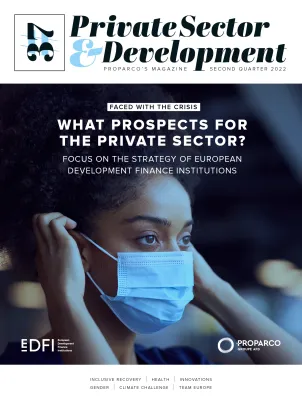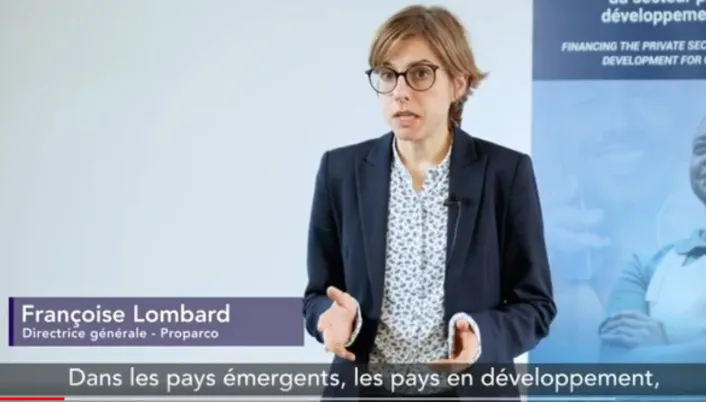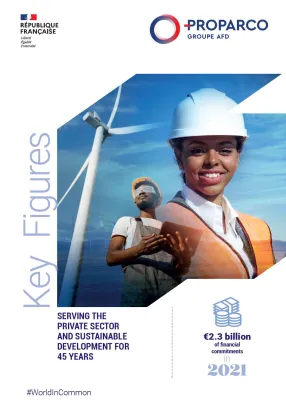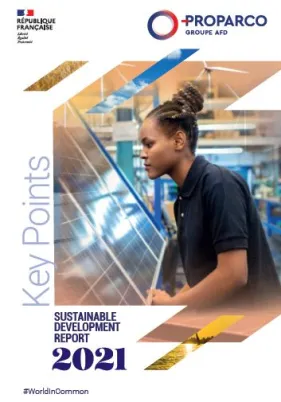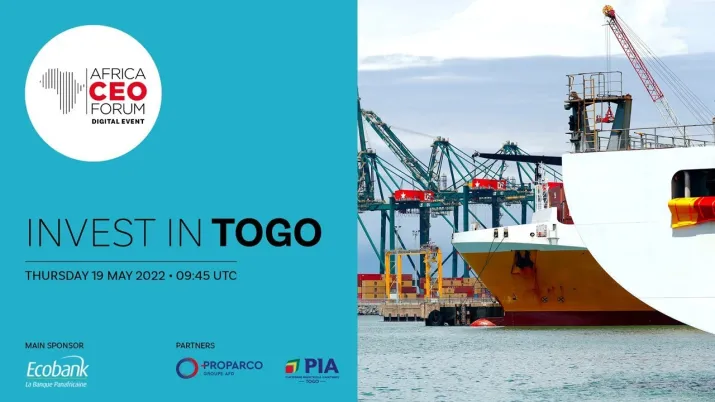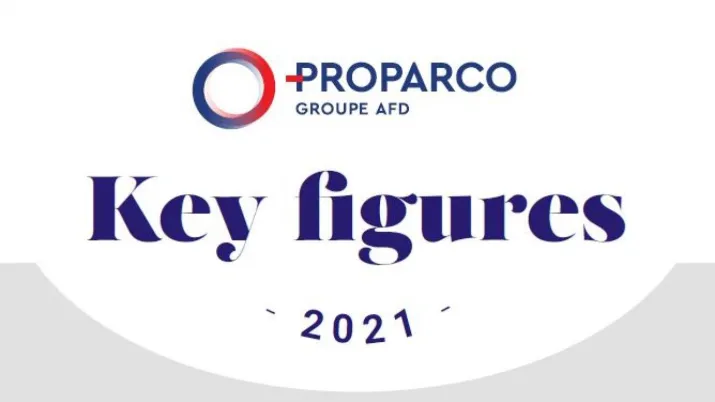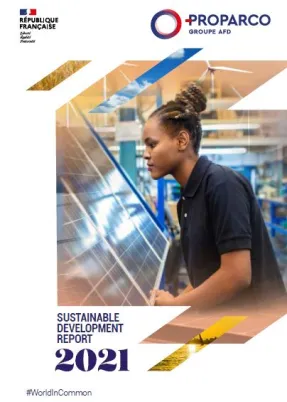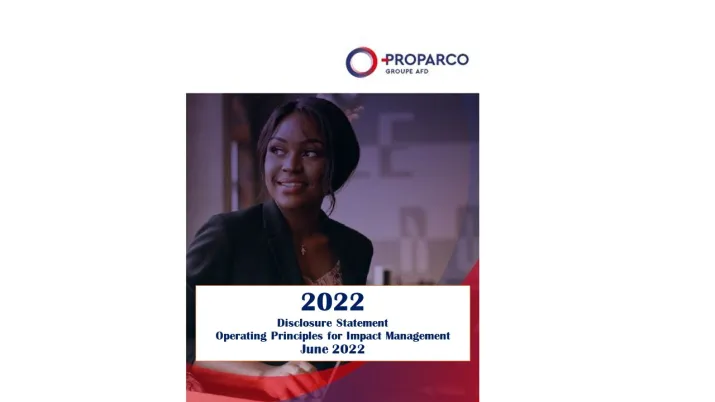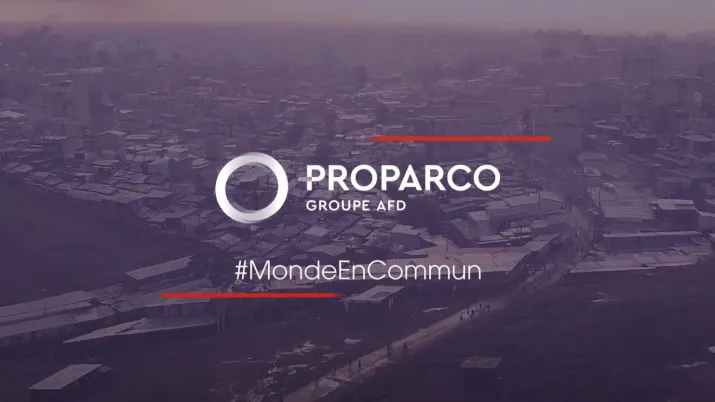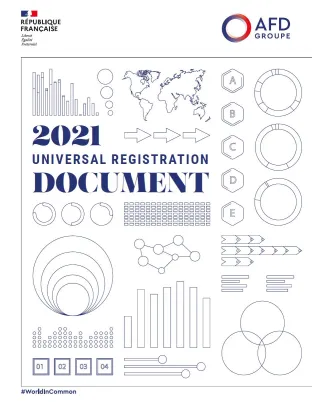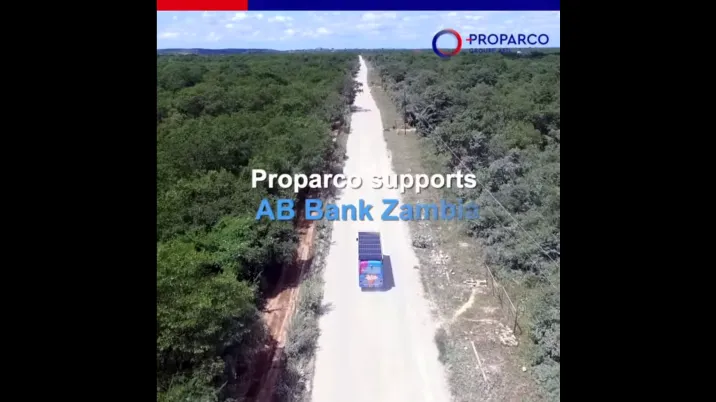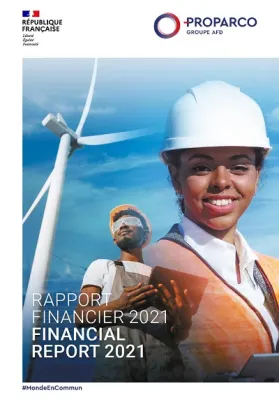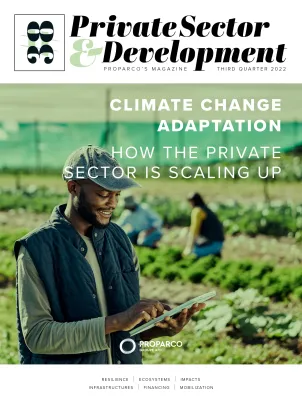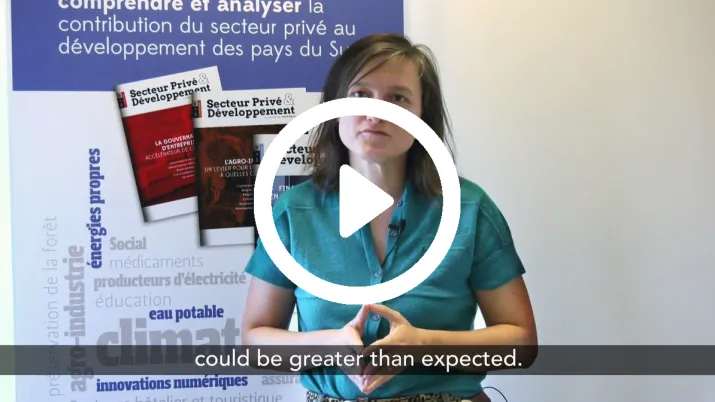Search results
REPLAY - INTERVENTION OF PROPARCO DURING INVEST IN BENIN 2022
Watch the intervention of Myriam BRIGUI (Proparco), during the event Invest In Benin on February 2022.
Publication
Published on
Private Sector & Development #37 - Faced with the crisis, what prospects for the private sector?
The 37th edition of Private Sector & Development magazine, produced with the association EDFI, gives a voice to European development finance institutions and presents their responses to the crisis lin...
Publication
Published on
Vidéo presentation of the magazine - Private Sector and Development 37 : Faced with the crisis, what prospects...
Presentation of the 37th edition of Proparco's Private Sector & Development magazine, by Françoise Lombard, General Manager of Proparco and Bruno Wenn, President of the EDFI association. This latest i...
Publication
Published on
Proparco and its 2021 Key Figures
Despite 2021 being marked by the continuing effects of the crisis caused by the Covid-19 pandemic, PROPARCO maintained a level of financial commitments of over €2 billion to support private sector dev...
Publication
Published on
Key points - Proparco sustainable development report 2021
This new edition of the KEY POINTS brochure presents the main expected impact results of a scope of 75 new financings signed by Proparco in 2021. It also shows their expected contribution to the Susta...
Publication
Published on
REPLAY - INTERVENTION OF PROPARCO DURING INVEST IN TOGO 2022
Watch the intervention of Fatoumata SISSOKO-SY (Proparco), during the event Invest In Togo on May 2022.
Publication
Published on
Infographic: Results 2021 - Key Figures
2.3 billion in authorized financing, Proparco has returned to growth in 2021 by increasing its commitments and strengthening their impact.
Publication
Published on
Replay - LAC Forum 2022 – 08/06/2022 - Financing the transition – Pierre Forestier, Proparco
The green transition can help us move towards a more sustainable and connected development model in Latin America and the Carribean.
Publication
Published on
Sustainable development report 2021
"Given the urgency of the climate challenge, with less than a decade left to meet the Sustainable Development Goals (SDGs) and in a context where the crisis following the Covid-19 pandemic has led to...
Publication
Published on
2021 Disclosure Statement Operating Principles for Impact Management
The Impact Principles set inspiring goals to reach for all responsible finance investors eager to promote business in common. They provide standards and guidelines for an analytical and systemic appro...
Publication
Published on
2022 Disclosure Statement Operating Principles for Impact Management
The Impact Principles set inspiring goals to reach for all responsible finance investors eager to promote business in common. They provide standards and guidelines for an analytical and systemic appro...
Publication
Published on
Proparco and AB BANK promote financial inclusion for rural and isolated populations
In Zambia, more than half the population lives in rural areas and 3.1 million people do not have access to a banking service. AFD Group supports AB Bank Zambia, the only bank financing Zambian MSMEs i...
Publication
Published on
Proparco, serving the private sector and sustainable development
Proparco is the private sector financing arm of Agence Française de Développement Group (AFD Group). It has been promoting sustainable economic, social and environmental development for 45 years. P...
Publication
Published on
2021 Universal Registration Document
Eighty years after its creation by General de Gaulle on 2 December 1941, the AFD Group continues its relentless quest for impact. It is in this spirit that AFD, guided by the 2030 Agenda of the United...
Publication
Published on
REPLAY - Proparco's intervention at the 3Zero World Forum 2022
Watch the intervention of Denis Sireyjol from Proparco at the 3Zero World Forum 2022 on the panel Fostering an inclusive and sustainable development through SDG-aligned investments.
Publication
Published on
TEASER - Proparco and AB BANK promote financial inclusion for rural and isolated populations
In Zambia, more than half the population lives in rural areas and 3.1 million people do not have access to a banking service. AFD Group supports AB Bank Zambia, the only bank financing Zambian MSMEs i...
Publication
Published on
Proparco Financial Report 2021
Download Proparco's 2021 Financial Report in English and French.
Publication
Published on
Private Sector & Development #38 - Climate change adaptation: how the private sector is scaling up
To mark COP27 held in November 2022, the 38th issue of Private Sector & Development magazine is dedicated to climate change adaptation and presents the drivers for action of Development Finance Instit...
Publication
Published on
Presentation of the Private Sector & Development magazine n°38
To mark COP27, Proparco has released the 38th issue of its Private Sector & Development magazine: "Climate change adaptation: how the private sector is scaling up". Madeleine Portmann, Senior Inves...
Publication
Published on


